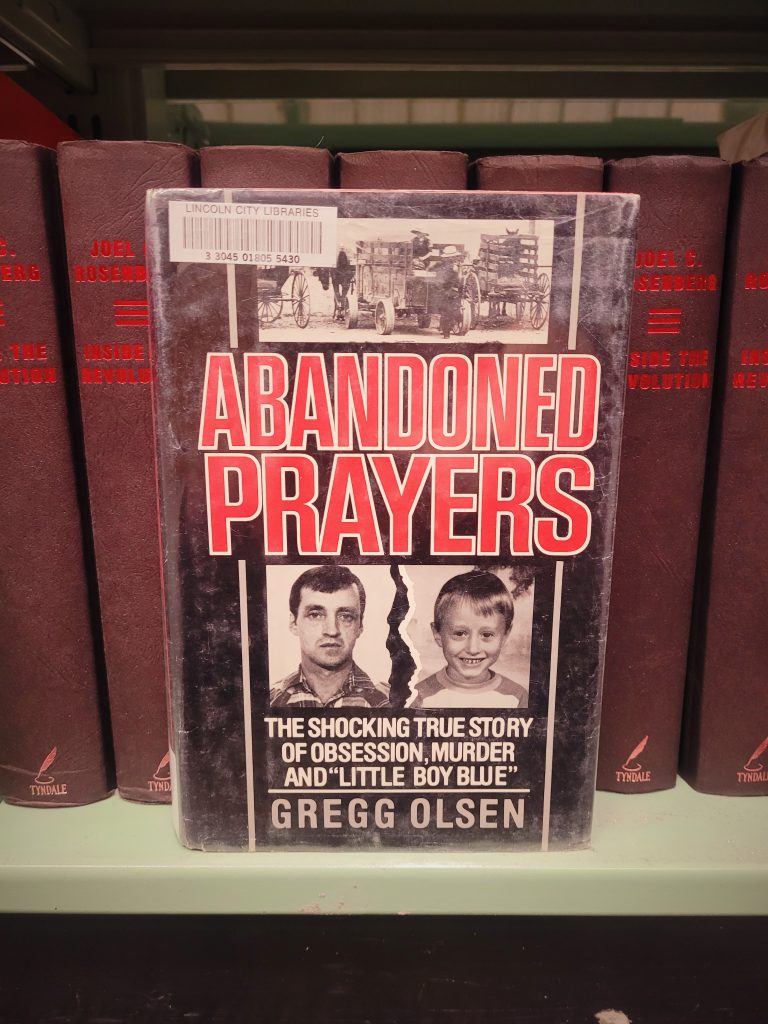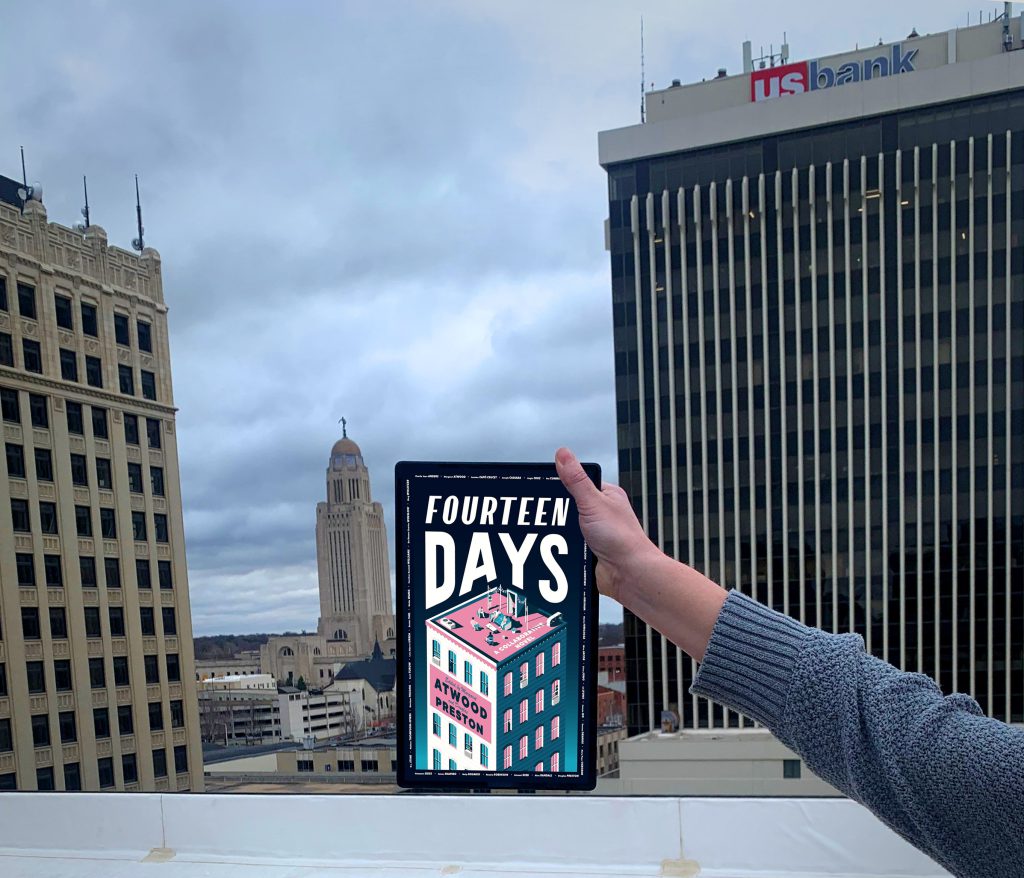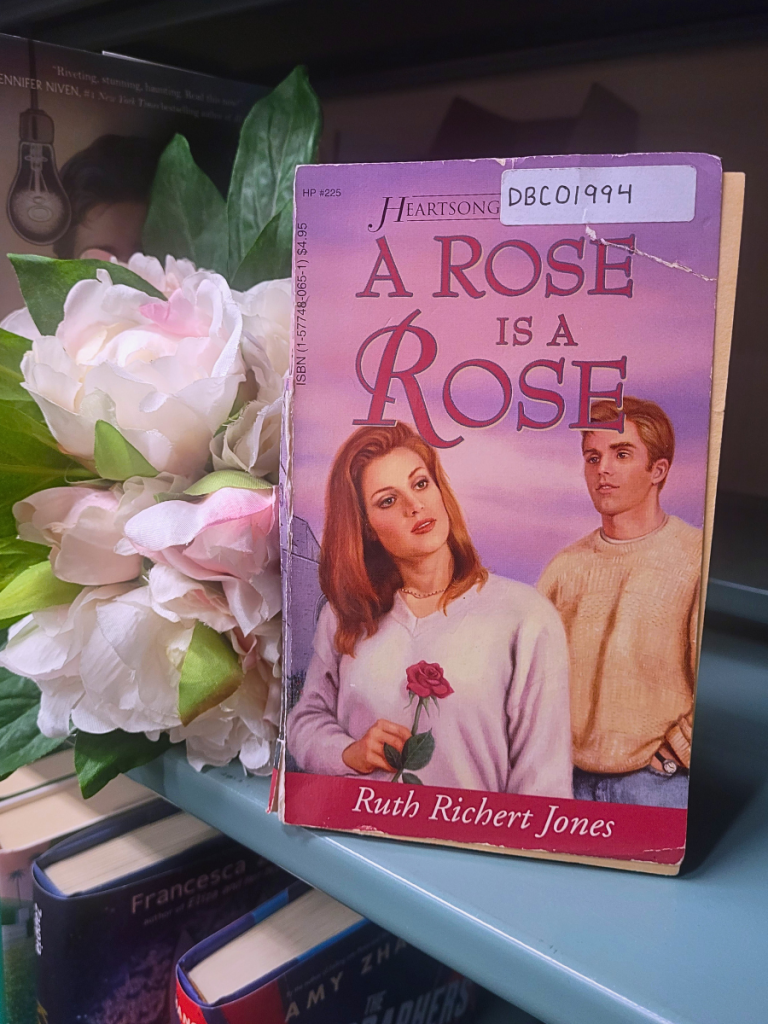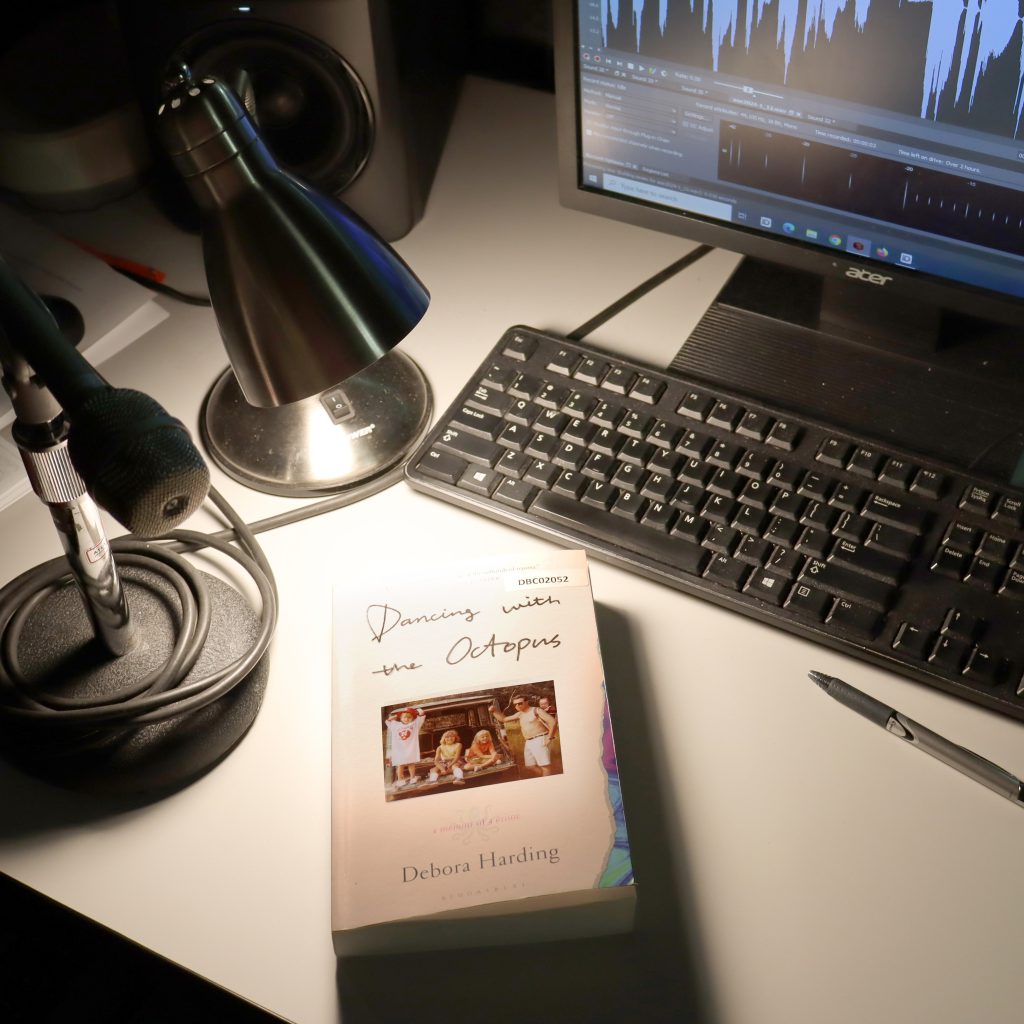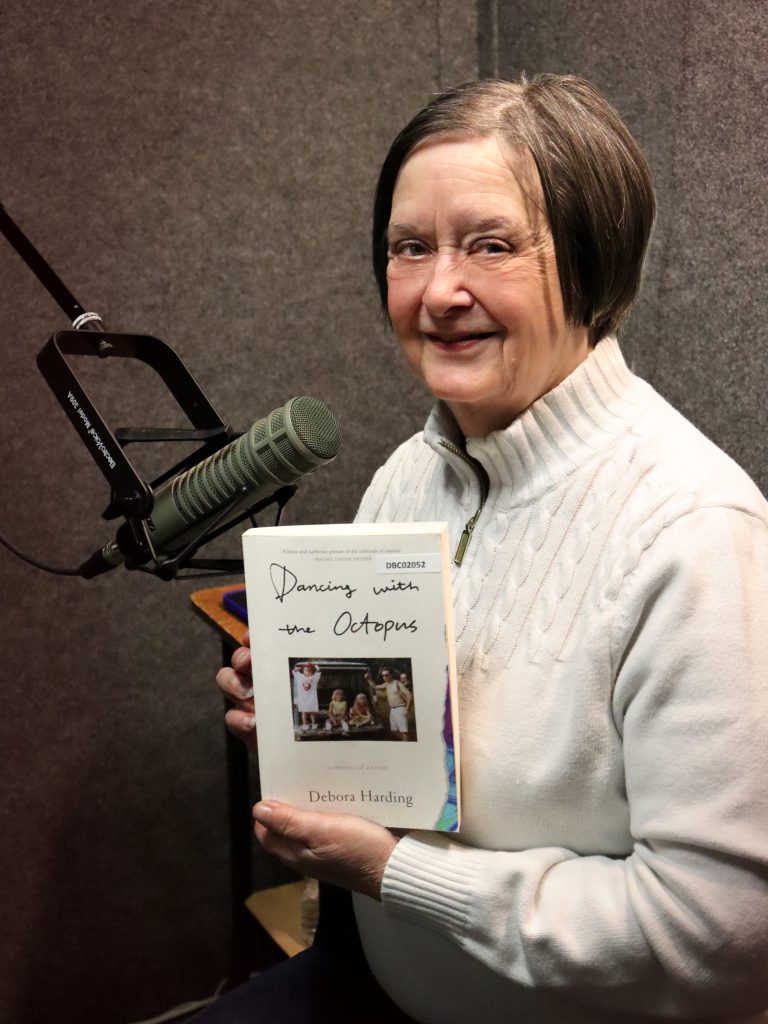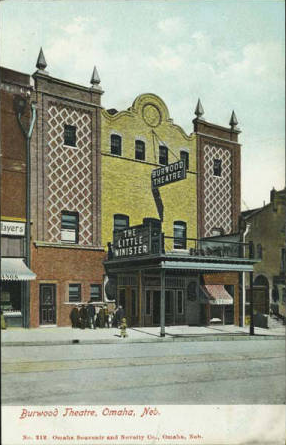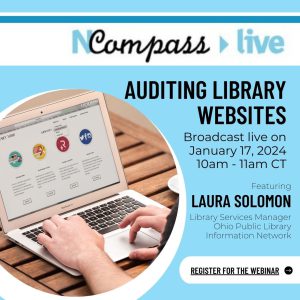Search the Blog
Categories
- Books & Reading
- Broadband Buzz
- Census
- Education & Training
- Friday Reads
- General
- Grants
- Information Resources
- Library Management
- Nebraska Center for the Book
- Nebraska Libraries on the Web
- Nebraska Memories
- Now hiring @ your library
- Preservation
- Pretty Sweet Tech
- Programming
- Public Library Boards of Trustees
- Public Relations
- Talking Book & Braille Service (TBBS)
- Technology
- Uncategorized
- What's Up Doc / Govdocs
- Youth Services
Archives
Subscribe
Category Archives: General
Friday Reads: Elvis in Vegas: How the King Reinvented the Las Vegas Show
I miss the Las Vegas of old. The endless submersion in Kitch (perhaps only bested by the highly recommended House on the Rock), cheap eats and drinks, low stakes table games, cigarillo smoke, and copious amounts of prime opportunities for people watching. Much of this existed historically, or at least to a greater extent by comparison, Downtown. I remember the draw to Downtown, before the gaudy “Fremont Street Experience” was installed in 1995. Less walking for sure, not to mention a much better value. A place where you could traverse across 4 or 5 casinos in a matter of just a few minutes. Where you could play 25 cent craps at the Golden Gate or $1 tables at the Four Queens, California, Las Vegas Club, Union Plaza, or the Horseshoe. If you were highbrow, you went to the $5 tables at the Golden Nugget. The dice go cold? Pick up your cocktail and head next door. You had options. For hungry gamblers, a trip over to the El Cortez or Lady Luck always offered excellent value, just off the main drag, but it was always advisable on the walk back (especially at night), to never, under no circumstances ever, stop. Always keep moving. These days, unfortunately, on the main drag downtown, you have hustlers in outlandish costumes (or virtually no costume at all) hassling you every ten seconds under that Fremont Street canopy that reeks of Commercialism.
Out on the strip, you used to have classics such as the Aladdin, Dunes, Riviera, Sands, Sahara, and while the Tropicana is still there (technically), the Moai are unfortunately long gone. The Moai most likely were too large to move at 35 feet tall, made outta solid concrete, and weighing 300,000 pounds each (they should’ve just left them there). While the Aku Aku restaurant in Las Vegas closed before my time, I did visit the Stardust on numerous occasions before it was imploded in 2007. Nothing would beat a cocktail stop at Slots-A-Fun when strolling the strip on hot summer days. Always ice cold and always just 75 cents, purchased from the guy standing across from the open door, insulated by the blaring casino air conditioning. Now we have the godawful Margarita by the Yard, at the low low price of (roughly) $35. The quantity may be there, but the value and quality sure ain’t. The authorities did keep one Aku Aku Moai, from the restaurant at the Stardust, (smaller than the ones at the Tropicana) moving it to Sunset Park, so there is that I suppose. Some of the local old timers may remember the Aku Aku lounge in Lincoln, inside the Villager Motel on O Street. Swank at a level only matched by its obvious equal, The Brothers Johnson. Unfortunately, like almost every other good thing around, the establishment tore down the Villager. The Tropicana will soon be demolished to make way for a baseball stadium, as many other icons have likewise succumbed to destruction. Anti-depressants were undoubtedly popped by any rational person after the announcement that the Mirage was sold and its iconic volcano will (eventually) be torn out to make way for a guitar shaped hotel (the property is now operated by Hard Rock International). What is the matter with these people? We should be discussing restoration of these gems to what they once were, instead of demolishing them in favor of something “new” that lacks any ounce of character. While I’m on the subject, I’d add that in almost all cases, demo and rebuild is more expensive than renovate and restore. However, the architects, designers, and consultants (and the politicians being greased by them) don’t make as much money taking that train, which is why the conductors ain’t selling it.
This book is more than merely the story of the revival of Elvis Presley’s career by virtue of his 636 sold-out shows at the International Hotel in Las Vegas. It tells a much broader story of the other performers and the history of those performances in the city. The set-up leading to the resurgence of Elvis is a worthwhile read. Yes, there is much focus on the Rat Pack and other Vegas essentials such as Tom Jones, Wayne Newton, Liberace, and Don Rickles (just to name a few), as well as the numerous all night long lounge acts. Takeaways: Most were great performers, but Frank Sinatra was a tyrant of legendary magnitude, directing his outbursts to almost all, but especially Sammy. The writing in this book is filled with all sorts of nuggets. As evidence, describing the comeback of Elvis, and the success of his first show, Zoglin summarizes:
“The show lasted an hour and fifteen minutes, and Elvis worked himself to a frazzle: pacing the stage like a panther, crouching, lunging, leaping, doing karate kicks and punches. He was audibly huffing and puffing after just a few minutes. He gulped water and Gatorade and mopped his sweat with towels handed to him by Charlie Hodge, or handkerchiefs and napkins tossed onstage by women in the audience.”
And, the downfall:
“His performances first began to be affected, by most accounts, during his August 1971 engagement. Elvis looked puffy and seemed listless onstage. His sets were rarely longer than forty-five minutes, and filled with so many fits and starts and distracting karate displays that some audience members actually walked out.”
Overall, Zoglin’s book is a formidable history of entertainment in the city of Las Vegas. Don’t be fooled by the title, it only partially describes the comeback (and downfall) of Elvis. In reality, it’s a much broader history of showbiz in Las Vegas, and the longing for those good ol’ days.
Zoglin, Richard. Elvis in Vegas. Simon & Shuster, 2019.
Throwback Thursday: Col. Prebble and Army Staff
Happy #ThrowbackThursday from Nebraska Memories!
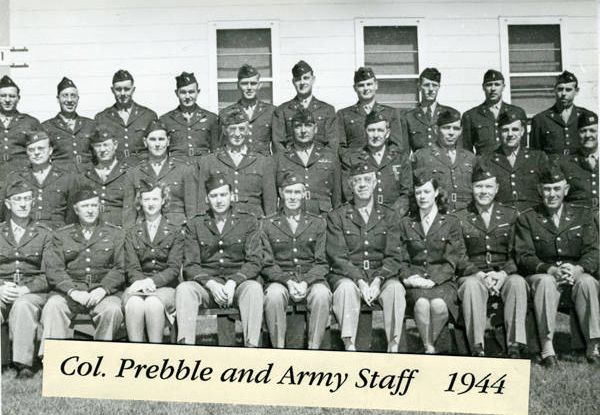
This 7” x 5” black and white formal photograph was taken in 1944. It shows the first commanding officer of the Sioux Army Depot, Colonel Prebble, along with his staff, which includes two women in uniform sitting in the front row. The Sioux Army Depot was established March 23, 1942 about seven miles west of Sidney, Nebraska. The depot was responsible for warehousing and distributing ammunition and general supplies. It was eventually deactivated on June 30, 1967.
This image is published and owned by the Cheyenne County Historical Society and Museum, located in Sidney, Nebraska. Their collection holds many historical photographs of people and places in Sidney, Fort Sidney, Potter, Dalton, and other communities and sites in the county.
See this collection and many more on the Nebraska Memories archive!
The Nebraska Memories archive is brought to you by the Nebraska Library Commission. If your institution is interested in participating in Nebraska Memories, see http://nlc.nebraska.gov/nebraskamemories/participation.aspx for more information.
Throwback Thursday: First British Edition “A Lantern in Her Hand” by Bess Streeter Aldrich
Its another #ThrowbackThursday!
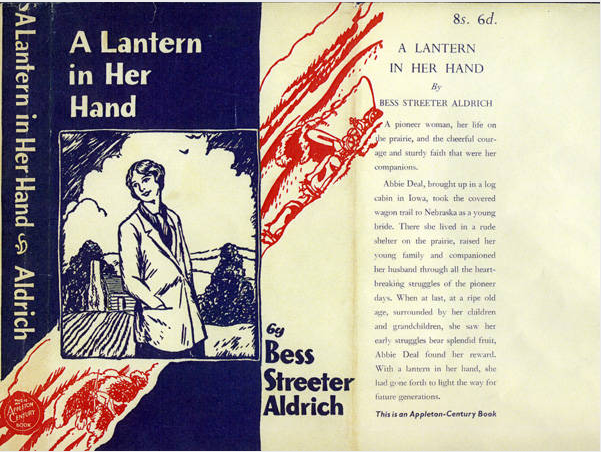
“A Lantern in Her Hand” was written in 1928 by Bess Streeter Aldrich, one of Nebraska’s most widely read and enjoyed authors. Pictured here is the book cover and inside flap of the first British edition of the book. The inside cover has a brief description of the book and lists the price as “8s. 6d.”
This image is published and owned by the Bess Streeter Aldrich Foundation. All items in their collection are on display at the Bess Streeter Aldrich House and the Bess Streeter Aldrich Museum in Elmwood, Nebraska.
See this collection and many more on the Nebraska Memories archive!
The Nebraska Memories archive is brought to you by the Nebraska Library Commission. If your institution is interested in participating in Nebraska Memories, see http://nlc.nebraska.gov/nebraskamemories/participation.aspx for more information.
Throwback Thursday: Immanuel Deaconess Institute Greenhouse and Garden
Hey #ThrowbackThursday, spring is just around the corner!
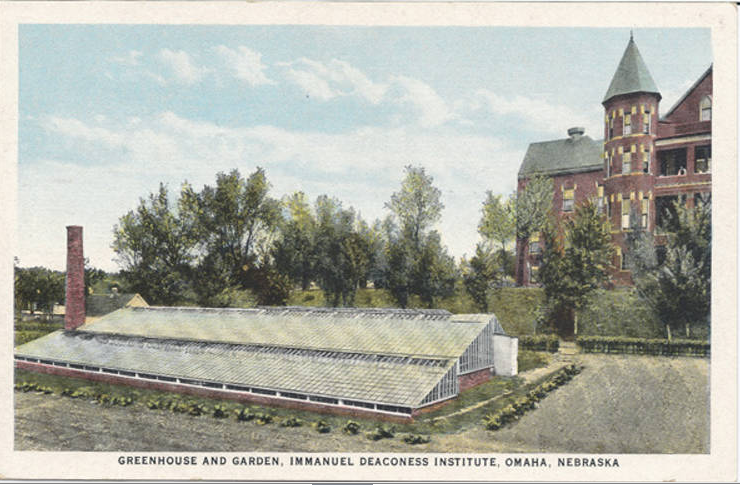
This week we have a 5.5” x 3.5” colortone postcard from 1937 picturing the beautiful greenhouse and garden area of the Immanuel Deaconess Institute campus located in Omaha, Nebraska. The Nazareth Home, which can be seen on the right, was the original hospital and was renamed when the Immanuel Hospital was built.
This image is published and owned by the Alegent Health Immanuel Medical Center, located in Bellevue, Nebraska. They have a mission to preserve, collect, display, and document objects and records related to the history of Sarpy County.
See this collection and many more on the Nebraska Memories archive!
The Nebraska Memories archive is brought to you by the Nebraska Library Commission. If your institution is interested in participating in Nebraska Memories, see http://nlc.nebraska.gov/nebraskamemories/participation.aspx for more information.
#BookFaceFriday “Among the Bros” by Max Marshall
Dude, it’s #BookFaceFriday!
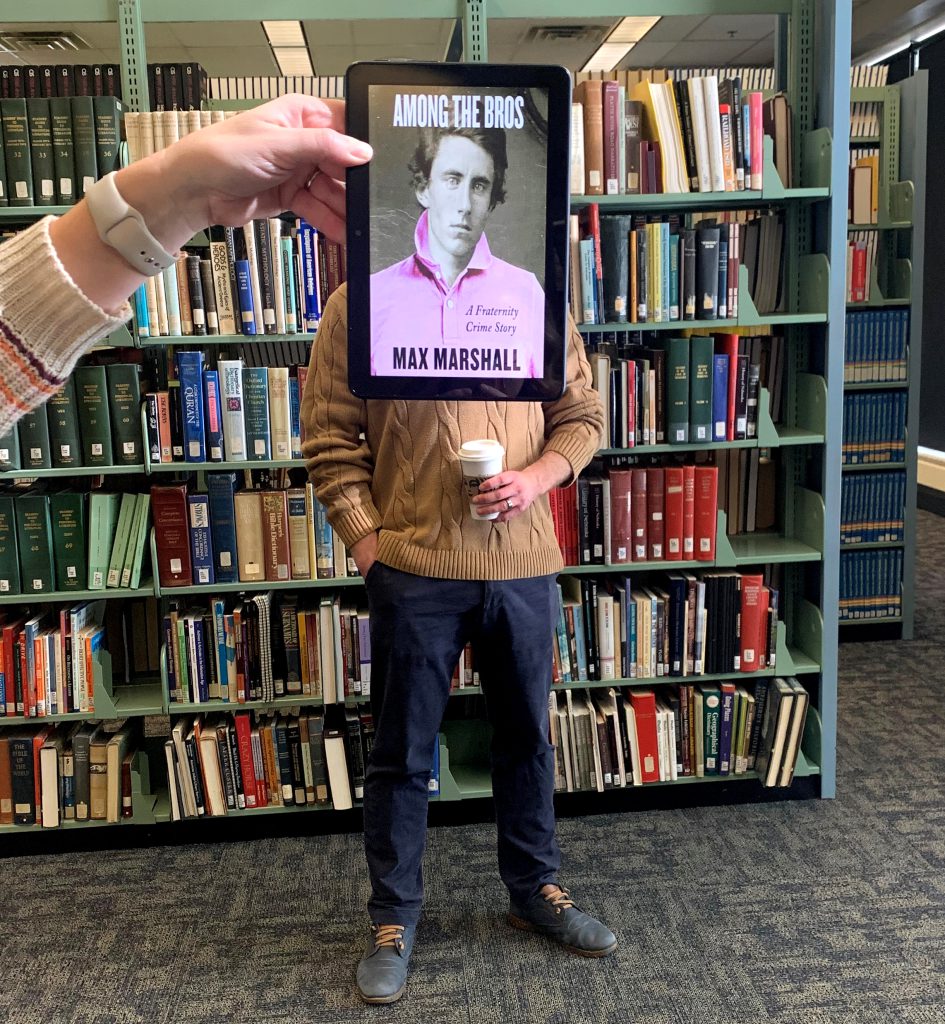
No cap, bro – this really happened! Fans of true crime and nonfiction storytelling are in for a wild ride
in this week’s #BookFace “Among the Bros: A Fraternity Crime Story” by Max Marshall (HarperAudio, 2023.) This title is available as an audiobook in Nebraska OverDrive Libraries! This week’s title fits into several different subject genres in Nebraska OverDrive Libraries including True Crime, Sociology, Autobiography & Biography, and Nonfiction. Depending on what you have a penchant for, you can search the entire digital collection by subject, whether it’s as broad as Nonfiction, or as niche as True Crime.“Through chilling, candid conversations with his sources, Marshall convincingly illustrates how these young men allowed greed to wreck their lives. The result is a fast-paced and frightening campus crime saga.”
—Publishers Weekly
Find this title and many more through Nebraska OverDrive! Libraries participating in the Nebraska OverDrive Libraries Group currently have access to a shared and growing collection of digital downloadable audiobooks and eBooks. 194 libraries across the state share the Nebraska OverDrive collection of 26,174 audiobooks, 36,611 ebooks, and 5,210 magazines. As an added bonus it includes 130 podcasts that are always available with simultaneous use (SU), as well as SU ebooks and audiobook titles that publishers have made available for a limited time. If you’re a part of it, let your users know about this great title, and if you’re not a member yet, find more information about participating in Nebraska Overdrive Libraries!
Love this #BookFace & reading? Check out our past #BookFaceFriday photos on the Nebraska Library Commission’s Facebook page!
Posted in Books & Reading, General
Tagged Among the Bros, Audiobook, bookfacefriday, Max Marshall, Nebraska OverDrive Libraries, OverDrive, Reading, True Crime
Leave a comment
Throwback Thursday: Banking House of A.W. Clarke 1909 Calendar Plate
It’s a #ThrowbackThursday leap year!
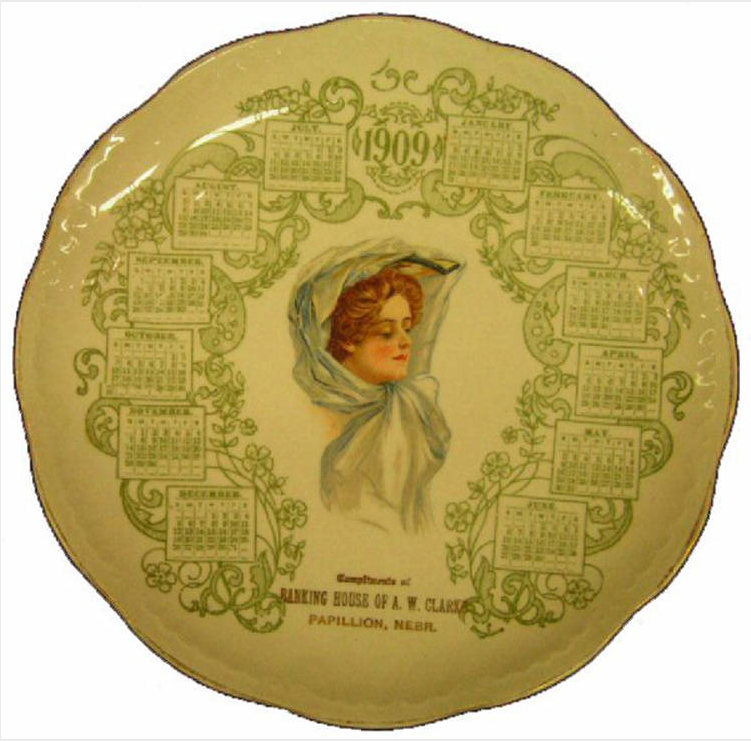
While 1909 was not a leap year, this calendar plate was likely created in the year prior 1908 which was a leap year. This decorative plate was given to customers of the Banking House of A.W. Clarke, which was the first bank in Papillion, Nebraska. The printing at the bottom of the plate reads “Compliments of Banking House of A.W. Clarke; Papillion, Nebr.”
This image is published and owned by the Sarpy County Historical Museum, located in Bellevue, Nebraska. They have a mission to preserve, collect, display, and document objects and records related to the history of Sarpy County.
See this collection and many more on the Nebraska Memories archive!
The Nebraska Memories archive is brought to you by the Nebraska Library Commission. If your institution is interested in participating in Nebraska Memories, see http://nlc.nebraska.gov/nebraskamemories/participation.aspx for more information.
Throwback Thursday: African American Orchestra
Happy Black History month from Nebraska Memories, here’s another #ThrowbackThursday for you!
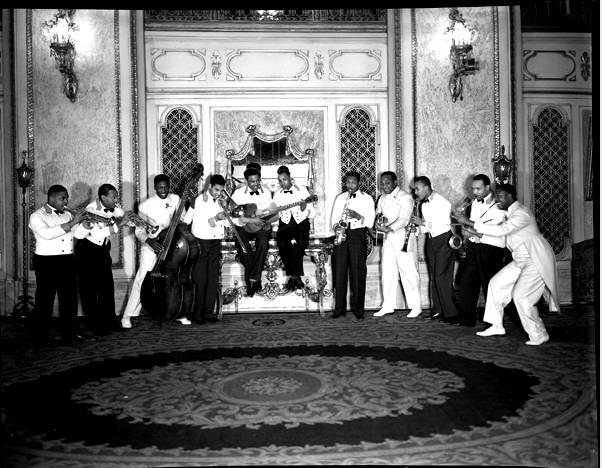
Dated December 8th 1937, this 8 x 10 acetate negative shows an orchestra of African American men playing at the Orpheum Theatre in Omaha, Nebraska. There are ten men playing a variety of instruments all being led by their conductor and his baton.
This image is published and owned by The Durham Museum and is part of the William Wentworth collection. The collection contains over 4000 photo negatives depicting life in Omaha, Nebraska from 1934 – 1950.
See this collection and many more on the Nebraska Memories archive!
The Nebraska Memories archive is brought to you by the Nebraska Library Commission. If your institution is interested in participating in Nebraska Memories, see http://nlc.nebraska.gov/nebraskamemories/participation.aspx for more information.
Throwback Thursday: Herpolsheimer Soda Fountain
Happy #ThrowbackThursday from Nebraska Memories!
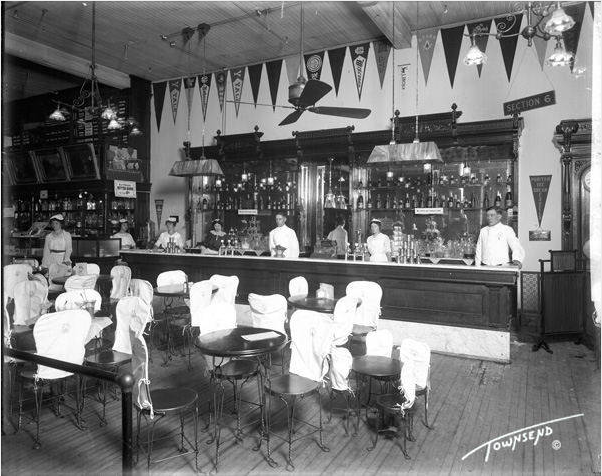
This 8 x 10 glass plate negative is a snapshot from 1915 of the soda fountain inside the H. Herpolsheimer Company department store, located on the southwest corner of N and 12th Street in Lincoln, Nebraska. Patrons of the soda fountain had a variety of treats to choose from, including: Dickinson’s maple mousse, mallow bitter sweet chocolate sundaes, puritan ice cream, Coca-Cola, old fashion butter scotch, and boxes of Vassar chocolate.
This image is published and owned by Townsend Studio, which has been in continuous operation since its foundation in 1888 in Lincoln, Nebraska. The studio holds a collection of glass plate and acetate negatives of early Lincoln and its residents.
See this collection and many more on the Nebraska Memories archive!
The Nebraska Memories archive is brought to you by the Nebraska Library Commission. If your institution is interested in participating in Nebraska Memories, see http://nlc.nebraska.gov/nebraskamemories/participation.aspx for more information.
New Postal Rates
New prices for Library Mail from the USPS went into effect on January 21. The new rates, which represent about a 6% increase, can be found here. The Library Mail rates are scheduled to increase again in July 2024.
In July 2023 the USPS introduced a new product line entitled USPS Ground Advantage. For libraries that need to ship heavier items in a non-time sensitive manner, but would like the items to be insured, this may be a good alternative to FedEx or UPS, as all Ground Advantage packages are automatically insured for $100 at no extra charge, with tracking included. Click for the new rates
Posted in General
Leave a comment
Friday Reads & #BookFaceFriday: Houses with a Story, by Seiji Yoshida
Sometimes art imitates #BookFaceFriday
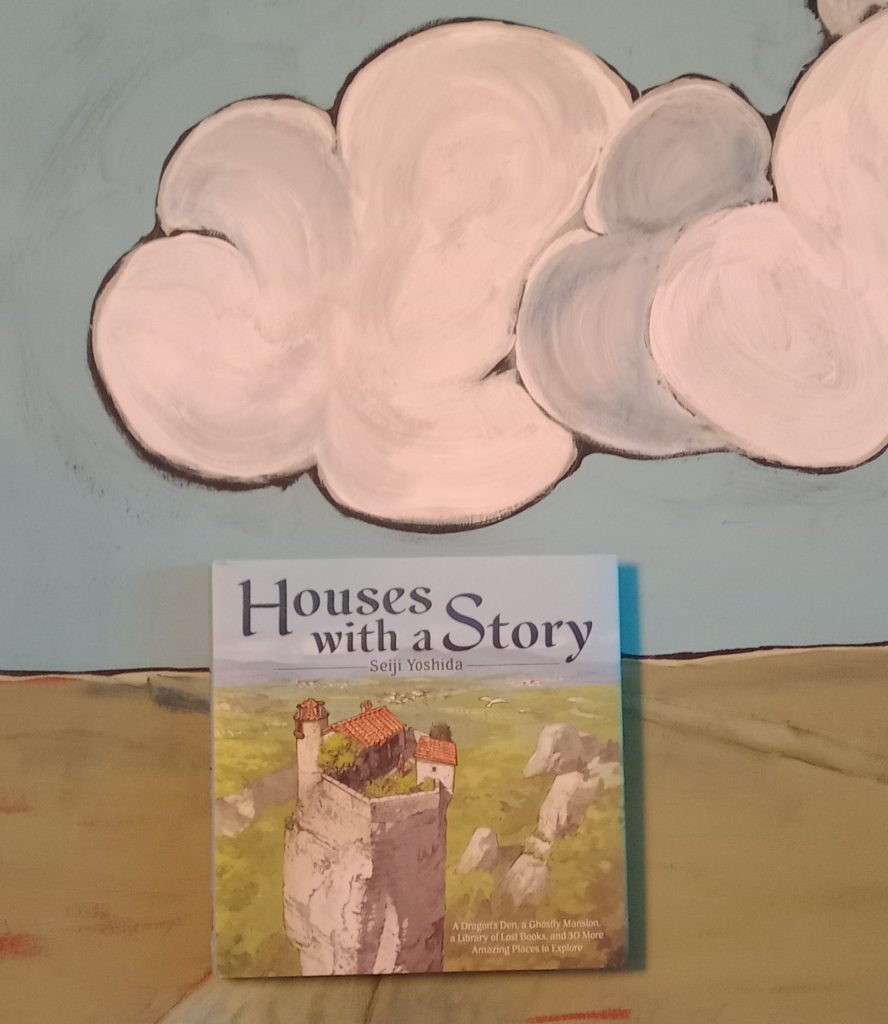
After the holiday frenzy I needed to read something that would serve as a mental palate cleanser–the literary equivalent of a deep, cleansing breath. Houses with a Story, by Seiji Yoshida, fit the bill.
Yoshida, a Tokyo-based artist who works as a professional background illustrator in the game/anime industry, first published Houses with a Story in Japan in 2020. The English translation came out in November 2023. Language isn’t the most important component of this book, however. Instead, detailed illustrations of over 30 imaginative dwellings, along with brief text hinting at a backstory for each, predominate.
Each of Yoshida’s 30+ houses get at least a two-page spread featuring both a street view and a cut-away drawing that lets you see inside the structure’s various rooms. This allows you to view nooks and crannies, furnishings, and basic possessions. Sketched floor plans are also sometimes included.
One of my favorite dwelling/character combos is the Methodical Witch’s House. Her small abode is divided into two rooms by a partial wall, which includes a two-sided hearth designed to heat both. The witch grows herbs and vegetables in an outdoor garden (also depicted), which she then harvests and uses in cooking and medicine. According to a “Concepts and Commentary” section at the back of the book, Yoshida imagines this house existing in mid-nineteenth century Scotland.
As a librarian, I also love Yoshida’s Library of Lost Books. This temple-like compound of unknown origin exists in an imaginary, isolated, Tibet-inspired landscape. According to the accompanying annotation, it supposedly contains “all the books that have been entirely lost to this world.” The lone librarian’s main duty is to comb the shelves for newly lost books that appear daily in order to catalog and organize them—a seemingly unending task.
The publisher of Houses with a Story recommends it for fans of Studio Ghibli, which makes sense given their similar aesthetic. I also think that adults who enjoy looking at architecture, floor plans, and photo spreads of enchanting and unusual living spaces will be enthralled. Finally, if you were a kid who loved poring over Richard Scarry, I Spy, and Where’s Waldo books, this might be a good selection for adult you!
You can find “Houses with a Story: A Dragon’s Den, a Ghostly Mansion, a Library of Lost Books, and 30 More Amazing Places to Explore” by Seiji Yoshida and many more in Nebraska OverDrive Libraries! Libraries participating in the Nebraska OverDrive Libraries Group currently have access to a shared and growing collection of digital downloadable audiobooks and eBooks. 194 libraries across the state share the Nebraska OverDrive collection of 26,174 audiobooks, 36,611 ebooks, and 5,210 magazines. As an added bonus it includes 130 podcasts that are always available with simultaneous use (SU), as well as SU ebooks and audiobook titles that publishers have made available for a limited time. If you’re a part of it, let your users know about this great title, and if you’re not a member yet, find more information about participating in Nebraska Overdrive Libraries!
This week’s BookFace “model” is a painting by the late Lincoln artist Larry Griffing, which hangs in librarian Lisa Kelly’s home. Thank you Lisa for capturing this photo for us!
Love this #BookFace & reading? We suggest checking out all the titles available in our Book Club collection, permanent collection, and Nebraska OverDrive Libraries. Check out our past #BookFaceFriday photos on the Nebraska Library Commission’s Facebook page!
Yoshida, Seiji. Houses with a Story. Abrams, 2023.
Posted in Books & Reading, General
Tagged #BookFace, bookfacefriday, Friday Reads, Houses with a Story, Reading, Seiji Yoshida
Leave a comment
Friday Reads: The Indigo Girl
The Indigo Girl, by Natasha Boyd, is an exceptional example of historical fiction, one of my favorite genres. In this incredible story of ambition, betrayal, and sacrifice, an extraordinary sixteen-year-old girl in Colonial South Carolina defies all expectations to achieve her dream.
“The year is 1739. Eliza Lucas is sixteen years old when her father leaves her in charge of their family’s three plantations in rural South Carolina and then proceeds to bleed the estates dry in pursuit of his military ambitions. Tensions with the British, and with the Spanish in Florida, just a short way down the coast, are rising, and slaves are starting to become restless. Her mother wants nothing more than for their South Carolina endeavor to fail so they can go back to England. Soon her family is in danger of losing everything.
Upon hearing how much the French pay for indigo dye, Eliza believes it’s the key to their salvation. But everyone tells her it’s impossible, and no one will share the secret to making it. Thwarted at nearly every turn, even by her own family, Eliza finds that her only allies are an aging horticulturalist, an older and married gentleman lawyer, and a slave with whom she strikes a dangerous deal: teach her the intricate thousand-year-old secret process of making indigo dye and in return—against the laws of the day—she will teach the slaves to read.
So begins an incredible story of love, dangerous and hidden friendships, ambition, betrayal, and sacrifice.
Based on historical documents, including Eliza’s letters, this is a historical fiction account of how a teenage girl produced indigo dye, which became one of the largest exports out of South Carolina, an export that laid the foundation for the incredible wealth of several Southern families who still live on today. Although largely overlooked by historians, the accomplishments of Eliza Lucas influenced the course of US history. When she passed away in 1793, President George Washington served as a pallbearer at her funeral.” [Audible]
This book is set between 1739 and 1744, and Natasha Boyd has done extensive research and masterful writing to form the story of a remarkable young woman whose actions were before her time. I listened to the Audible version, narrated by Saskia Maarleveld, and highly recommend this story about a little known piece of American history: the story of The Indigo Girl.
What’s Up Doc? New State Agency Publications at the Nebraska Library Commission
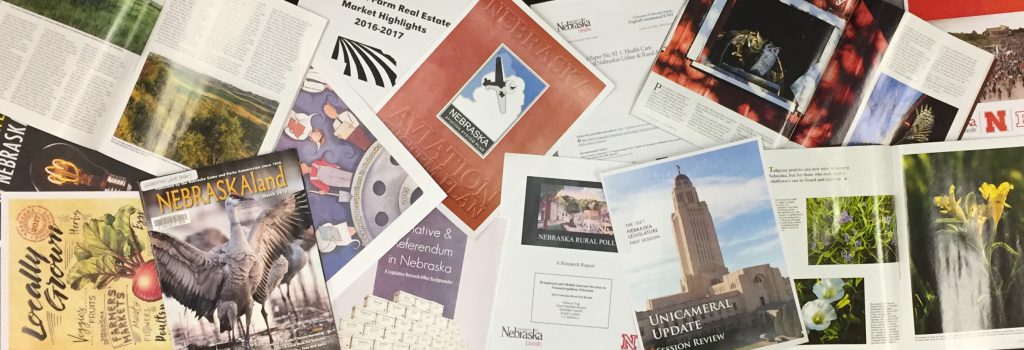
New state agency publications have been received at the Nebraska Library Commission for November and December, 2023. Included are reports from the Nebraska Environmental Trust, the Nebraska Crime Commission, the Nebraska Department of Transportation, and new books from the University of Nebraska Press, to name a few.
Most items, except the books from the University of Nebraska Press, are available for immediate viewing and printing by clicking on the highlighted link above, or directly in the .pdf below. You can read synopses of the books received from the University of Nebraska Press in the Book Briefs blogposts.
The Nebraska Legislature created the Nebraska Publications Clearinghouse in 1972 as a service of the Nebraska Library Commission. Its purpose is to collect, preserve, and provide access to all public information published by Nebraska state agencies. By law (State Statutes 51-411 to 51-413) all Nebraska state agencies are required to submit their published documents to the Clearinghouse. For more information, visit the Nebraska Publications Clearinghouse page, contact Mary Sauers, Government Information Services Librarian; or contact Bonnie Henzel, State Documents Staff Assistant.
Posted in Books & Reading, Education & Training, General, Information Resources, What's Up Doc / Govdocs
Tagged books, GovDocs, Reading
Leave a comment
Book Briefs: New University of Nebraska Press Books at the Nebraska Publications Clearinghouse
The Nebraska Publications Clearinghouse receives documents every month from all Nebraska state agencies, including the University of Nebraska Press (UNP). Every two months we will be showcasing the UNP books that the Clearinghouse has received.
UNP books, as well as all Nebraska state documents, are available for checkout by libraries and librarians for their patrons.
Here are the UNP books the Clearinghouse received in November and December, 2023:
Great Plains Forts, by Jay H. Buckley and Jeffery D. Nokes; Series: Discover the Great Plains
Great Plains Forts introduces readers to the fortifications that have impacted the lives of Indigenous peoples, fur trappers and traders, travelers, and military personnel on the Great Plains and prairies from precontact times to the present. Using stories to introduce patterns in fortification construction and use, Jay H. Buckley and Jeffery D. Nokes explore the eras of fort-building on the Great Plains from Canada to Texas. Stories about fortifications and fortified cities built by Indigenous peoples reveal the lesser-known history of precontact violence on the plains.
Great Plains Forts includes stories of Spanish presidios and French and British outposts in their respective borderlands. Forts played a crucial role in the international fur trade and served as emporiums along the overland trails and along riverway corridors as Euro-Americans traveled into the American West. Soldiers and families resided in these military outposts, and this military presence in turn affected Indigenous Plains peoples. The appendix includes a reference guide organized by state and province, enabling readers to search easily for specific forts.
Making Space : Neighbors, Officials, and North African Migrants in the Suburbs of Paris and Lyon, by Melissa K. Byrnes; Series: France Overseas: Studies in Empire and Decolonization
Since the 2005 urban protests in France, public debate has often centered on questions of how the country has managed its relationship with its North African citizens and residents. In Making Space Melissa K. Byrnes considers how four French suburbs near Paris and Lyon reacted to rapidly growing populations of North Africans, especially Algerians before, during, and after the Algerian War. In particular, Byrnes investigates what motivated local actors such as municipal officials, regional authorities, employers, and others to become involved in debates over migrants’ rights and welfare, and the wide variety of strategies community leaders developed in response to the migrants’ presence. An examination of the ways local policies and attitudes formed and re-formed communities offers a deeper understanding of the decisions that led to the current tensions in French society and questions about France’s ability—and will—to fulfill the promise of liberty, equality, and fraternity for all of its citizens. Byrnes uses local experiences to contradict a version of French migration history that reads the urban unrest of recent years as preordained.
Modern Jewish Theology : the First One Hundred Years, 1835-1935, Edited by Samuel J. Kessler and George Y. Kohler; Series: JPS Anthologies of Jewish Thought
Modern Jewish Theology is the first comprehensive collection of Jewish theological ideas from the pathbreaking nineteenth and early twentieth centuries, featuring selections from more than thirty of the most influential Jewish thinkers of the era as well as explorations of Judaism’s identity, uniqueness, and relevance; the origin of ethical monotheism; and the possibility of Jewish existentialism. These works—most translated for the first time into English by top scholars in modern Jewish history and philosophy—reveal how modern Jewish theology developed in concert with broader trends in Jewish intellectual and social modernization, especially scholarship (Wissenschaft des Judentums), politics (liberalism and Zionism), and religious practice (movement Judaism and the struggles to transcend denominational boundaries).
This anthology thus opens to the English-language reader a true treasure house of source material from the formative years of modern Jewish thought, bringing together writings from the very first generations, who imagined biblical and rabbinic texts and modern scientific research would produce a synthetic view of God, Israel, and the world. A general introduction and chapter introductions guide students and nonspecialists through the key themes and transformations in modern Jewish theology, and extensive annotations immerse them in the latest scholarship.
Reading the Contemporary Author : Narrative, Authority, Fictionality, Edited by Alison Gibbons and Elizabeth King; Series: Frontiers of Narrative
Readers, literary critics, and theorists alike have long demonstrated an abiding fascination with the author, both as a real person—an artist and creator—and as a theoretical concept that shapes the way we read literary works. Whether anonymous, pseudonymous, or trending on social media, authors continue to be an object of critical and readerly interest. Yet theories surrounding authorship have yet to be satisfactorily updated to register the changes wrought on the literary sphere by the advent of the digital age, the recent turn to autofiction, and the current literary climate more generally. In Reading the Contemporary Author the contributors look back on the long history of theorizing the author and offer innovative new approaches for understanding this elusive figure.
Mapping the contours of the vast territory that is contemporary authorship, this collection investigates authorship in the context of narrative genres ranging from memoir and autobiographically informed texts to biofiction and novels featuring novelist narrators and characters. Bringing together the perspectives of leading scholars in narratology, cultural theory, literary criticism, stylistics, comparative literature, and autobiography studies, Reading the Contemporary Author demonstrates that a variety of interdisciplinary viewpoints and critical stances are necessary to capture the multifaceted nature of contemporary authorship.
To Educate American Indians : Selected Writings from the National Educational Association’s Department of Indian Education, 1900-1904, Edited by Larry C. Skogen; Series: Indigenous Education
To Educate American Indians presents the most complete versions of papers presented at the National Educational Association’s Department of Indian Education meetings during a time when the debate about how best to “civilize” Indigenous populations dominated discussions. During this time two philosophies drove the conversation. The first, an Enlightenment era–influenced universalism, held that through an educational alchemy American Indians would become productive, Christianized Americans, distinguishable from their white neighbors only by the color of their skin. Directly confronting the assimilationists’ universalism were the progressive educators who, strongly influenced by the era’s scientific racism, held the notion that American Indians could never become fully assimilated. Despite these differing views, a frightening ethnocentrism and an honor-bound dedication to “gifting” civilization to Native students dominated the writings of educators from the NEA’s Department of Indian Education.
For a decade educators gathered at annual meetings and presented papers on how best to educate Native students. Though the NEA Proceedings published these papers, strict guidelines often meant they were heavily edited before publication. In this volume Larry C. Skogen presents many of these unedited papers and gives them historical context for the years 1900 to 1904.
Wallace Stegner’s Unsettled Country : Ruin, Realism, and Possibility in the American West, Edited by Mark Fiege, Michael J. Lansing, and Leisl Carr Childers
Wallace Stegner is an iconic western writer. His works of fiction, including the Pulitzer Prize–winning Angle of Repose and Big Rock Candy Mountain, as well as his nonfiction books and essays introduced the beauty and character of the American West to thousands of readers. Wallace Stegner’s Unsettled Country assesses his life, work, and legacy in light of contemporary issues and crises. Along with Stegner’s achievements, the contributors show how his failures offer equally crucial ways to assess the past, present, and future of the region.
Drawing from history, literature, philosophy, law, geography, and park management, the contributors consider Stegner’s racial liberalism and regional vision, his gendered view of the world, his understandings of conservation and the environment, his personal experience of economic collapse and poverty, his yearning for community, and his abiding attachment to the West. Wallace Stegner’s Unsettled Country is an even-handed reclamation of Stegner’s enduring relevance to anyone concerned about the American West’s uncertain future.
**Pictures and Synopses courtesy of University of Nebraska Press.
Throwback Thursday: Burwood Theatre in Omaha, Neb.
Happy #ThrowbackThursday from Nebraska Memories!
This week, we have a 14 x 9 cm color postcard featuring the exterior of the Burwood Theatre located at 1514 Harney Street in Omaha, Nebraska.
The Burwood Theatre was built in 1906. A few years later, its name was changed to the Gayety. It became a notorious burlesque house. Civic organizations protested and finally, in 1928, the theater was closed.
This image is published and owned by Omaha Public Library. The items from Omaha Public Library in Nebraska Memories include early Omaha-related maps dating from 1825 to 1922, as well as over 1,100 postcards and photographs of the Omaha area. The Omaha Postcard Collections shows scenes of Omaha, spanning a time period from the 1890s to the 1920s.
Check out this collection and many more on the Nebraska Memories archive.
The Nebraska Memories archive is brought to you by the Nebraska Library Commission. If your institution is interested in participating in Nebraska Memories, see http://nlc.nebraska.gov/nebraskamemories/participation.aspx for more information.
NCompass Live: Auditing Library Websites
Have you wondered if your library’s website needs some work? How do you decide that, without being subjective? How do you know what to measure, or how to measure it?
Learn about ‘Auditing Library Websites’ on next week’s NCompass Live webinar on Wednesday, January 17 at 10am CT.
There are many current standards for content, images, navigation, usability, and more that can be readily applied to your website, allowing for a more objective analysis of what you currently have. A website audit can provide a valuable framework, especially before beginning a full or even partial redesign of your library’s site. Learn about data-based principles that can guide your future work and discover some tools that can provide concrete specifics for elements that may need attention.
Presenter: Laura Solomon, MCIW, MLS is the Library Services Manager for the Ohio Public Library Information Network (OPLIN). She has been doing web development and design for more than twenty years, in both public libraries and as an independent consultant. She specializes in developing with Drupal. She is a 2010 Library Journal Mover & Shaker. She’s written three books about social media and content marketing, specifically for libraries, and speaks nationally on both these and technology-related topics. As a former children’s librarian, she enjoys bringing the “fun of technology” to audiences and in giving libraries the tools they need to better serve the virtual customer.
Upcoming NCompass Live shows:
- Jan. 24 – Best New Teen Reads of 2023
- Jan. 31 – Pretty Sweet Tech: WordPress Website Refresh
- Feb. 7 – WiFi in the Library
- Feb. 14 – ConnectEd Nebraska: Bridging the Digital Divide through Innovative eduroam Expansion
- Feb. 21 – Using Creativity to Grow & Develop

To register for an NCompass Live show, or to listen to recordings of past shows, go to the NCompass Live webpage.
NCompass Live is broadcast live every Wednesday from 10am – 11am Central Time. Convert to your time zone on the Official U.S. Time website.
The show is presented online using the GoTo Webinar online meeting service. Before you attend a session, please see the NLC Online Sessions webpage for detailed information about GoTo Webinar, including system requirements, firewall permissions, and equipment requirements for computer speakers and microphones.
#BookFaceFriday “I’m Going to Build a Snowman” by Jashar Awan
Bundle up it’s #BookFaceFriday!
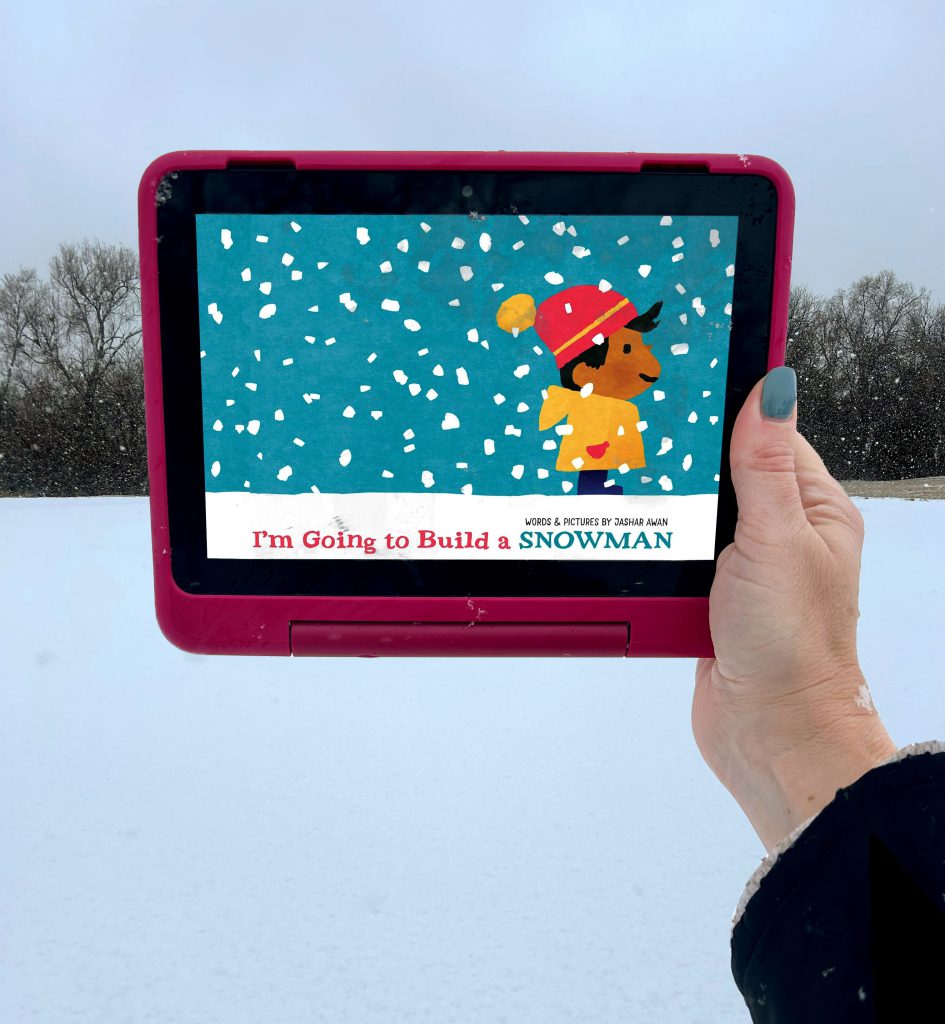
Let it snow, let it snow, let it snow, because we have access to all the books we could want! No matter the age group or reading level, you can find great books on Nebraska OverDrive Libraries. Just like this week’s #BookFaceFriday, a picture book perfect for a snow day, “I’m Going to Build a Snowman” written and illustrated by Jashar Awan (Simon & Schuster Books for Young Readers, 20231.) It’s a great reminder that just because the building is closed the library still has plenty to offer. It’s available for checkout as an ebook from Nebraska Overdrive Libraries.
“When a little boy wakes up to see a blanket of snow covering the world outside, there’s only one thing to do: make a snowman, and not just any snowman—he wants the best snowman ever. But when his perfectly packed and powdery dreams clash with cold, slushy reality, he realizes the best snowman ever may be out of reach…but he can make his best snowman yet.”
— Book Jacket
Find this title and many more through Nebraska OverDrive! Libraries participating in the Nebraska OverDrive Libraries Group currently have access to a shared and growing collection of digital downloadable audiobooks and eBooks. 194 libraries across the state share the Nebraska OverDrive collection of 26,174 audiobooks, 36,611 ebooks, and 5,210 magazines. As an added bonus it includes 130 podcasts that are always available with simultaneous use (SU), as well as SU ebooks and audiobook titles that publishers have made available for a limited time. If you’re a part of it, let your users know about this great title, and if you’re not a member yet, find more information about participating in Nebraska Overdrive Libraries!
Love this #BookFace & reading? Check out our past #BookFaceFriday photos on the Nebraska Library Commission’s Facebook page!

